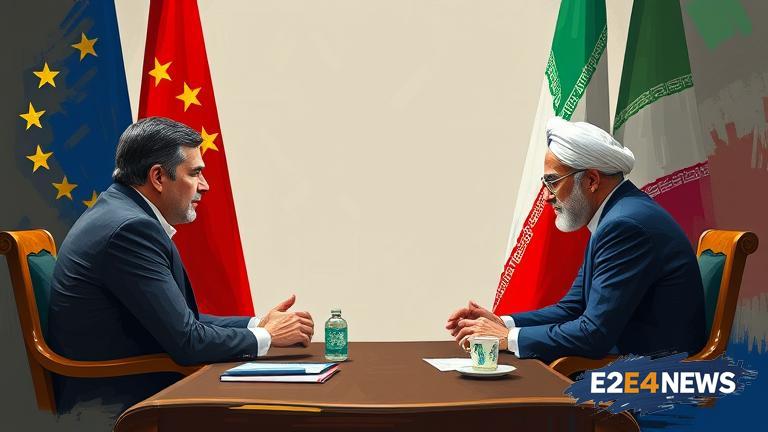In a last-ditch effort to prevent the collapse of the nuclear agreement, European and Iranian diplomats have gathered for urgent talks. The discussions, which commenced on August 26, 2025, are taking place in a tense atmosphere, with the looming sanctions deadline casting a shadow over the negotiations. The European delegation, comprising representatives from the United Kingdom, France, and Germany, is seeking to persuade Iran to adhere to the terms of the nuclear accord. Iran, on the other hand, is demanding relief from the crippling economic sanctions that have been imposed upon the country. The Iranian government has consistently maintained that it will not compromise on its right to develop nuclear energy for peaceful purposes. The European diplomats are attempting to find a middle ground, one that would allow Iran to continue its nuclear program while ensuring that it does not pose a threat to regional or global security. The talks are being held in a secret location, with both sides exercising extreme caution to avoid any leaks or misunderstandings. The sanctions deadline, which is fast approaching, has added an extra layer of complexity to the negotiations. If an agreement is not reached, the consequences could be severe, with the potential for a significant escalation of tensions in the region. The European Union has been working tirelessly to broker a deal, with the bloc’s foreign policy chief playing a key role in the negotiations. The Iranian government has been facing intense pressure from hardline elements within the country, who are opposed to any compromise on the nuclear issue. Despite these challenges, the Iranian delegation has shown a willingness to engage in constructive dialogue, and there are hopes that a breakthrough may be possible. The nuclear agreement, which was signed in 2015, has been on life support for several years, with the United States withdrawing from the deal in 2018. The European powers have been struggling to keep the agreement alive, but the task has become increasingly difficult in recent months. The talks are not only about the nuclear issue but also about the broader relationship between Europe and Iran. The European Union is seeking to strengthen its ties with Iran, while also ensuring that the country does not pose a threat to regional stability. The Iranian government, on the other hand, is looking to reduce its dependence on European trade and investment, while also maintaining its sovereignty and independence. The negotiations are being closely watched by other countries in the region, including Saudi Arabia and Israel, who have expressed concerns about Iran’s nuclear program. The United States, which has been a vocal critic of the nuclear agreement, is also monitoring the situation closely. As the talks continue, there are hopes that a deal may be reached, one that would prevent the collapse of the nuclear agreement and reduce tensions in the region. However, the challenges are significant, and it remains to be seen whether the European and Iranian diplomats can find a way forward. The fate of the nuclear agreement hangs in the balance, and the consequences of failure could be severe. The world is watching with bated breath as the diplomats engage in these high-stakes talks, hoping against hope that a breakthrough may be possible. The European Union has reiterated its commitment to the nuclear agreement, and the Iranian government has also expressed its willingness to find a solution. As the deadline draws near, the pressure is mounting, and the diplomats are working around the clock to find a way out of the impasse. The talks are a testament to the complexities of international diplomacy, where multiple stakeholders and interests are at play. The outcome of the negotiations will have far-reaching consequences, not only for Europe and Iran but also for the broader region and the world at large.
